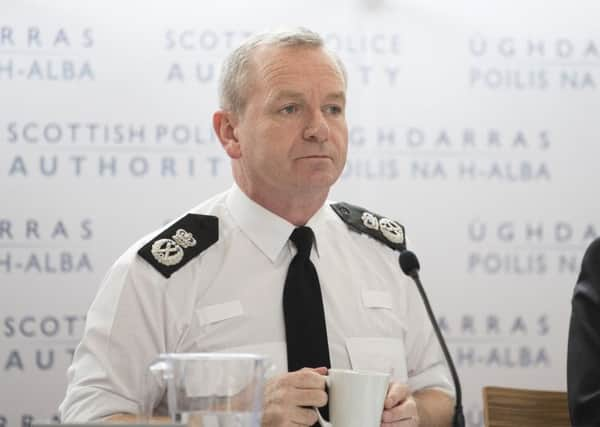Tom Wood: It's getting better but it's still uphill for Police Scotland


It found that the Home Office’s light-touch approach to oversight means it does not know if the police system is financially sustainable – there was no long-term plan or an understanding of demand on police services or their costs. Distribution of funding was found to be incoherent, failing to reflect new demands, and so on. The conclusion is that, with no plan for reform and no systematic approach to ensure forces are financially sustainable, there is no certainty that the Home Office’s oversight of policing is value for money – ouch!
Here in Scotland we are surely in a better place. Police Scotland, from a difficult birth, is at last struggling to its feet. It was never going to be easy, bringing together eight quite different forces, all with long and proud traditions, all with good and bad habits, subtely different practices and very different IT and communications systems. Add substantial cost savings and it was a fair challenge. For the first few years of its existence, Police Scotland had all the hallmarks of a good idea badly executed but now at last there are positive signs.
Advertisement
Hide AdAdvertisement
Hide AdThe Scottish Police Authority – the governing body – chaired by someone experienced in Scottish Public life and, more importantly, a Chief Constable fit for purpose. Iain Livingstone, who most informed observers believe should have been appointed the last time the job fell vacant, has all the qualities to make a success of his huge job. The early signs are encouraging, the tone of his messages to his staff and his outreach to local authority chief executives show an insight and deftness of touch absent in either of his predecessors. There is a long way to go and many hurdles to overcome but Livingstone has the potential to grow into the police leader Scotland needs and his beleaguered staff deserves.
But before we settle back to self congratulation, let’s consider the road ahead.
The bald facts are that Police Scotland has fewer people and a lot less money than the old constituent forces. Recruitment is strong but so are retirement numbers. Years of experience cannot be quickly replaced by new recruits no matter how keen and well led. Added to that is the long decline of essential civilian support staff, reduced to balance the books.
And like his colleagues in England, Livingstone and his force face the biggest hurdle of all – the iron law of physics which dictates that you cannot do more of one thing without doing less of another given the same resource. You can juggle numbers, conjure up all the tricks you have up your sleeve but the hard facts remain. New demands are rising. Cyber crime, counter terrorism and the seemingly unending historic abuse investigations all demand you do more while the old problems stubbornly refuse to go away.
Housebreaking, a horrible crime for the victims, remains high, the drug trade is still vibrant and in the West of Scotland gang members continue their endless cycle of assassination with knife and gun.
Livingstone will need all the help he can get, not just from the politicians and the professionals but from civic Scotland- that’s you and me.
And if we really want to live in a “safer and stronger” Scotland we must actually do something about it.
• Tom Wood is a writer and former Deputy Chief Constable of Lothian & Borders Police